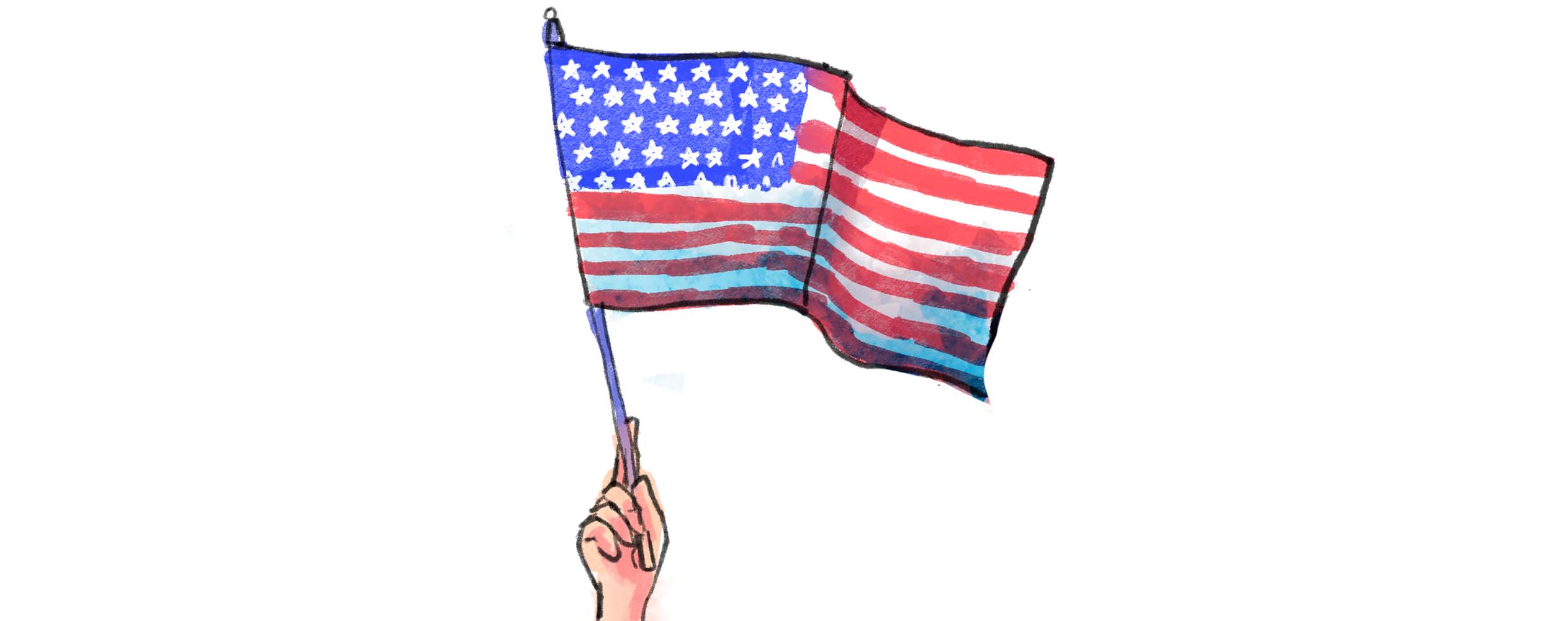When I was 16, I boarded a one-way flight to Lima, Peru with an ill-fitting blazer draped over my arm and a folded-up American flag in my suitcase. My final destination was Arequipa, a city that sits at the foot of a dormant volcano, a city I came to call home over the next year.
That year, I gained not only a Peruvian family but also an international one, made up of 60 other exchange students from various countries. I learned some choice French curse words and nearly swallowed my tongue pronouncing Danish phrases. I learned about New Year’s in Taiwan, the taboo around the word “race” in Germany, and the progressive teaching styles of schools in Finland. As I put a face to each country, the world seemed to shrink. But in the midst of this little Earth in the south of Peru, I learned the most about my own country and identity.
I knew that people would question my American identity in Peru. Even in my own country, I’ve experienced both implicit and explicit attacks on my Americanness. Still, hours of pre-exchange orientation had drilled into my head that personal interaction brings countries together. It was my job to represent the America I know and love—including my Korean roots.
Two weeks before my departure date, I bought a large American flag, still on sale from the Fourth of July. It was a tradition for exchange students to carry their country’s flag on their travels, and it made for great photo-ops. I still remember how it felt the first time I posed for a picture, flying the American flag high above my head. Up until that moment, I had never been able to claim my American identity because I was too busy fighting for it. I grew up hiding Korean food under the lunch table, changing the song on my iPod when someone walked by, and laughing off offensive jokes, lest my classmates think I wasn’t truly one of them. Until that moment, America had never felt like it was mine.
So when one morning, three months into my year in Peru, a European exchange student pointed to my running shorts and said, “Oh, all of the American girls have those shorts, I really want a pair,” I did a double take. After a lifetime of being “the Asian girl,” being lumped in with “the American girls” was a new sensation, one of pride and belonging.
But why was it so jarring to be called an American girl? That is exactly what I am.
Even though I had come to this realization, the fight to establish my American image was far from over. My seven-year-old host sister asked me if I was a tourist in the United States. I was constantly confused with the exchange student from Taiwan. My teachers at school asked me if I missed China. Catcalls of “chinita” and “konnichiwa” plagued me on the beautiful streets of Arequipa.
What I didn’t expect was to have to fight just as hard for my Korean heritage. Fellow exchange students said to me, “I thought you were Asian when I first met you.” Friends were quick to scold people who asked me about Korea: “She’s not Korean, she’s American.” The prevailing mentality I encountered was that you had to be one or the other, that somehow, my Korean heritage made me less American.
The term “Korean-American,” or any other term that combines two nationalities, is ungrammatical in many other cultures. It is a distinctly American thing to be able to claim more than one country’s heritage. The way I see it, the “Korean” in “Korean-American” is an adjective that describes “American.” In the same way that a car can be red, blue, or any other color without changing the fact that it is a car, Americans can be Korean, German, Nigerian, or any other heritage without changing the fact that they are American.
I see this sentiment gaining ground, most notably in the Broadway musical “Hamilton,” which I fell in love with shortly after my return flight landed in the U.S. I delighted in this immigrant founding father’s story, in the cast that reflected today’s America, my America. My time in Peru taught me that the world needs reminding: I am American, regardless of my physical appearance, my second language, or the number of years my family has been in this country. I’ll keep waving my American flag, literally and metaphorically. America has been, and always will be, mine.
Image Credit: Abhichana Naiyapatana







